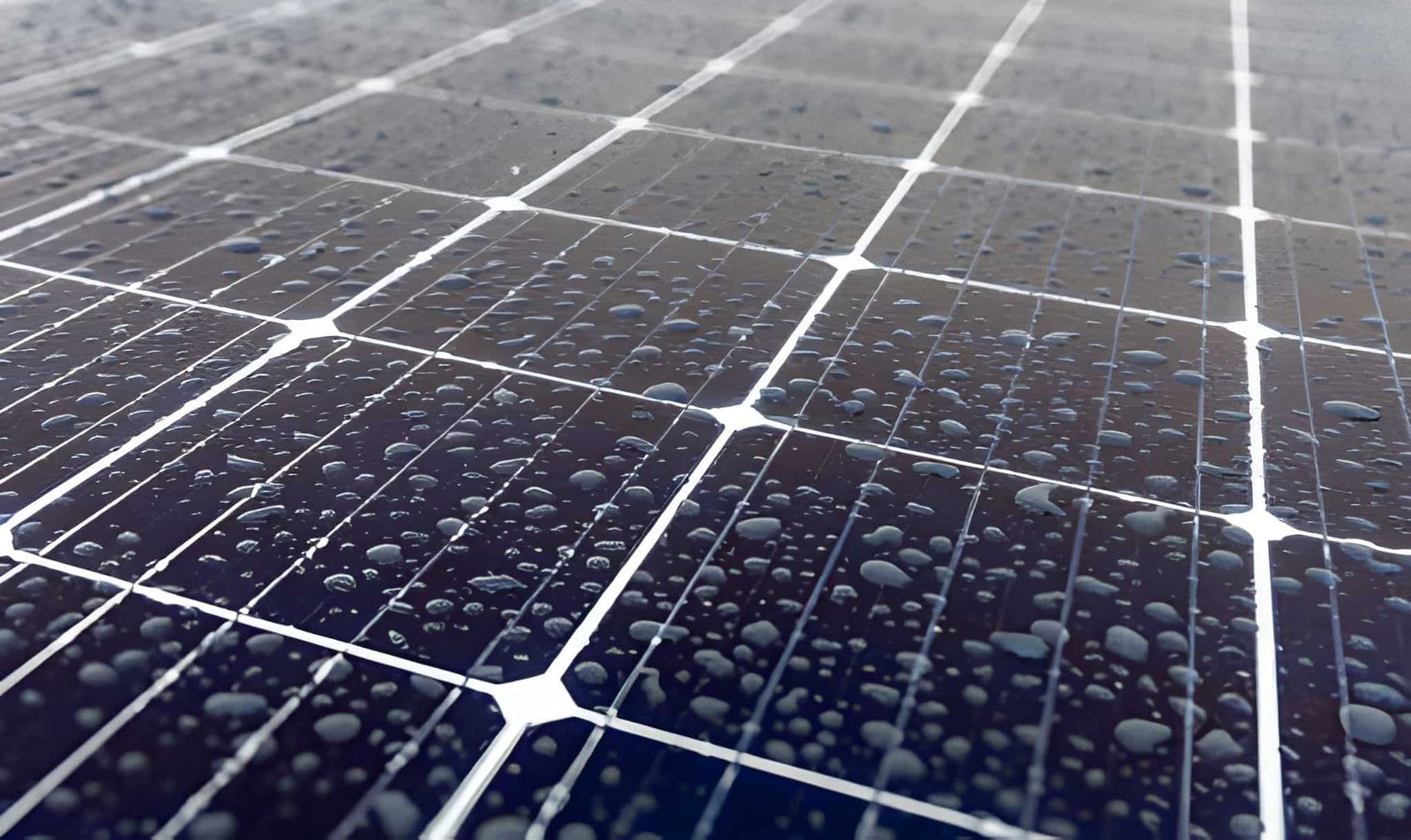
Tips for Maintaining Solar Panels during the Rainy Season
As the rainy season arrives, many solar installers showing their concern about whether their panels will keep their performance efficiently. While solar systems are planned to survive in any seasonal challenge rain and storms, the mixture of heavy rains, strong winds, and cloudy skies can still affect energy production if panels aren’t correctly maintained. Rainwater may wash off dust, but it also leaves behind dirt, streaks, and mineral deposits. Additional humidity can damage electric wiring, and dense vegetation during this season often shades panels.
That’s why consistent care, appropriate examinations, and precautionary actions are important to keep your solar panels working at their best—even during rainy season. Here are some everyday Tips to Maintaining solar panels during the rainy season.
Regular Cleaning After Heavy Rainfall
Rainfall occasionally leaves behind starches, dirt coverings, and mineral deposits on the outside of solar panels, even though it can aid in washing away small dust particles. Because these deposits obstruct sunlight, their efficiency may be reduced.
- Gently wipe the panels with a gentle brush or squeegee dipped in clean water.
- Steer clear of strong detergents as they could harm the protective layer.
- To avoid dirt drying out and adhering, schedule cleanings immediately following intense storms.
During overcast months, a basic cleaning regimen can increase your panel’s efficiency by up to 10% to 15%.
Monitor Energy Output Frequently
As there is less sunlight during the rainy season, solar production naturally decreases. Significant dips, however, could indicate problems like water incursion, shade from overgrown trees, or dirt accumulation.
Use a monitoring app or inverter display to keep tabs on your system’s production on a daily or weekly basis. If the output significantly deviates from typical rainy-day performance, schedule a professional inspection.
Monitoring makes sure minor problems don’t develop into expensive fixes.
Inspect for Water Accumulation
Water may collect around mounting structures or on flat rooftops where panels are installed as a result of heavy rains. Both the roof and the electrical components may sustain harm from stagnant water.
- Verify that the drainage systems on your rooftop are adequate.
- Because tilted installations enable rainfall to drain off rapidly, they are preferred.
- To stop leaks into the electrical system, routinely inspect waterproofing and sealants.
Electrical risks and corrosion are avoided with a properly maintained drainage system.
Trim Overhanging Branches and Vegetation
Plant development is frequently accelerated during the wet season. Once-innocent trees or bushes might suddenly block out solar panels, decreasing their exposure to sunshine and effectiveness.
- Before the rainy season starts, trim any overhanging branches.
- To prevent shadowing and clogged gutters, make sure falling leaves and debris are removed as soon as possible.
In addition to improving performance, this lowers the possibility of physical harm from fallen branches during storms.
Check Electrical Components and Wiring
One of the main dangers to electrical systems is moisture. Rainwater can leak into junction boxes, inverters, and inadequately insulated wires, resulting in power outages and short circuits.
- Look for indications of wear or water intrusion in the cables, connectors, and inverters.
- Immediately replace any damaged insulation.
- Employ qualified specialists to perform comprehensive pre-monsoon inspections.
Long-term cost savings and safety are guaranteed by preventive inspections.
Ensure Strong Mounting Structures
Heavy rains are frequently accompanied by storms and strong gusts. Panels may tremble, flex, or even separate as a result of loose or weak mounting arrangements.
- Make sure the bolts and mounting frames are tight and free of rust.
To stop rust, use galvanized or stainless-steel materials. For older installations, plan reinforcing inspections for before each wet season.
During severe weather, your panels are protected by sturdy installation.
Invest in Professional Maintenance
Although consumers can do simple cleaning and inspections, professional maintenance guarantees long-term effectiveness and technical precision.
System performance audits will be carried out by a certified solar supplier.
- Verify safety precautions and electrical grounding.
- Find hidden issues like possible hotspots or microcracks.
During the wet season, scheduling at least one expert maintenance appointment keeps your solar investment secure.
Why DSG Energy Is Your Trusted Solar Partner
During the wet season, solar panel maintenance calls for skill, accuracy, and constant attention. Beyond installation, DSG Energy offers comprehensive solutions that include upkeep, monitoring, and technical assistance to keep your system operating at its best all year long.
DSG Energy has established a solid reputation for providing dependable solar solutions for residences and commercial buildings, and the company has come to represent innovation, sustainability, and client confidence. DSG Energy is available to support your journey, whether it involves cost reduction, energy independence, or making a positive impact on the environment.
A Brighter Tomorrow Awaits
Although there may be difficulties during the rainy season, your solar panels can continue to function well and provide clean energy without interruption if you take the appropriate safety measures. You can protect your investment and play a bigger part in creating a sustainable future by combining routine maintenance with expert assistance.
Take care of your solar panels, and they will take care of your energy needs—rain or shine
FAQs
No, even though their efficiency is decreased, solar panels can still produce electricity on overcast or rainy days Rainfall duration and cloud density determine how much reduction occurs.
Although solar panels are made to endure storms and rain, water seepage may result from improper installation, shoddy mounting, or broken seals. This risk is eliminated with routine maintenance.
It’s normally sufficient to clean once every two to three weeks during periods of heavy precipitation, but more frequent cleaning might be necessary if your area gets muddy rain or storm debris.
Yes. Some issues like wiring faults, loose mounts, or internal water seepage may not be visible. Professional inspections ensure hidden problems are identified early.

